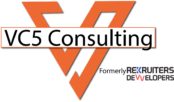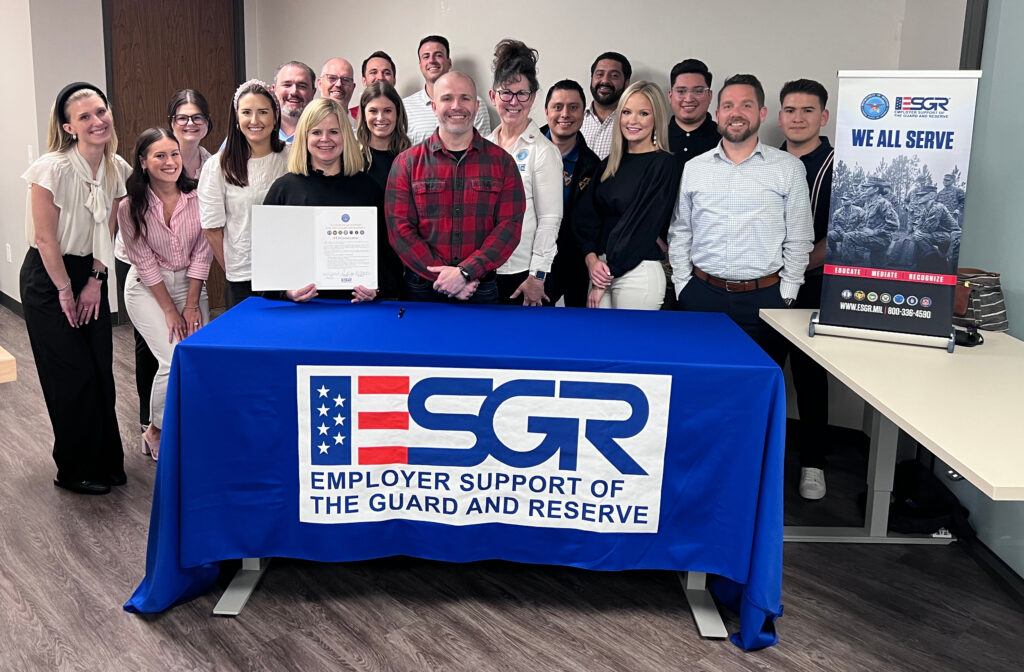Mastering the Virtual Interview: Tips for a Successful Online Interview in 2024
The prevalence of virtual interviews remains significant at the halfway point of 2024. Whether you are an experience candidate or searching for your first job, the skill of excelling at virtual interviewing can set you apart from the competition and open doors to excellent opportunities. We will list some practice you can use before, during, as well as after your interview to show your engagement with the role and leave a great first impression on the hiring staff. Preparing for Virtual Success The first step to having a great interview is to make sure you adequately prepare the night before to reduce the chances of obstacles/distractions on the day: Prepare and Check Your Technology: Check your internet connection, microphone, and camera are operational and up to date. Test everything beforehand in a mock interview to avoid technical difficulties. Dress Appropriately: Event though it is a virtual interview, dress professionally to show respect and seriousness about the opportunity. Treat a virtual interview just as you would any regular on-site interview which means business professional/casual depending on what the company has told you (if nothing, default to business professional). Select the Right Location in Your House/Apartment: Choose a room/area that has minimal distractions and is away from other family members, noise, or pets that could interrupt your train of thought during the interview. The background behind you during the interview should ideally be a blank wall/space without anything in the frame that can potentially distract your interviewer from you and what you are saying. If you don’t have access to a blank wall, Zoom and Microsoft Teams have a ‘blur background’ feature that only leaves you in focus while blurring anything behind you. Know Your Resume and Practice Your Elevator Pitch: Your resume is the main document. that hiring managers will have prior to the interview to gauge your past experience and overall quality as a candidate, so you can be sure they will be asking you to talk about the things on your resume! Crafting and perfecting a concise elevator pitch introduction showcasing your skills and why you are a great fit for the role is also a great way to make a first impression at the start of the interview. Research the Company and Interviewer(s): Coming into the interview, you should know the ins and outs of the company to show genuine interest to the hiring manager – if you don’t bother to find out what the company is all about, then you are showing 0 interest to want to work there. Try and connect with the interviewer on LinkedIn and find out basic information such as their role, how long they have been at the company, how your prospective role fits into theirs, and any common interests outside of work (college, sports teams, hometown, pets, etc.) for easier small talk during the interview During the Interview Now that you have fully prepared for your interview, there are certain best practices that you can utilize during the interview to stand out: Notes are Fine, Scripts are Not: There is nothing wrong with having a couple of notes written down about key points you want to cover or some questions you wish to ask the interviewer. However, having a prepared script that you plan to read off of is a great way to make a negative impression on your interviewer. No matter how hard you try to make it sound natural, when you read from a script it will always be noticeable and come off as less impactful (especially over a video call). Just because the interview is taking place online, don’t think your interviewer will not be able to tell you are reading from a script on your screen! Look into Your Webcam, Not Your Reflection: Lets be honest, we have all looked at ourselves in a Zoom call before either to check how we look or to make sure our posture is appropriate. During your interview make it a point to look directly into the camera instead of your screen to show the interviewer you are paying attention and to maintain eye contact. It is okay to break eye contact temporarily but do not start staring at something else on your screen to avoid looking disinterested and zoned out. Don’t Perform a Monologue: Outside of your opening elevator pitch, the interview should really feel more like a conversation as opposed to a constant back and forth question and answer session. It is also important to remember than an interview is as much about listening as it is speaking; use your time with the hiring manager to learn more about the company you perhaps were not able to find out from your initial research. Maintain Good Body Language: When you are in a comfortable, familiar environment such as your home it is very easy to begin to relax and start slouching or swinging on your chair during your interview. Watch Your Pace: In nervous/stressful situations, people always subconsciously speed up when they are talking which can make it harder to understand what you are trying to say, especially over an online call when connection can already be an issue. Remind yourself to talk at a slower pace than you normally would to offset this and don’t forget to take pauses for effect/emphasis if there are certain points you want to stick with the interviewer. Show, Don’t Tell: To impress your hiring manager, you begin to say this during your interview: “You should hire me because I am hard-working and innovative professional with a proven track record of success.” Without any specific examples, this will leave them wondering how can I know they are hard-working. To combat this, make sure to show instead of tell! You can achieve this by using a personal anecdote/example of a time you were hard-working in your last job or a time during college as this will show your interviewer a tangible example of this quality and add to your credibility. Showcase Your Soft Skills:
Mastering the Virtual Interview: Tips for a Successful Online Interview in 2024 Read More »
The prevalence of virtual interviews remains significant at the halfway point of 2024. Whether you are an experience candidate or searching for your first job, the skill of excelling at virtual interviewing can set you apart from the competition and open doors to excellent opportunities. We will list some practice you can use before, during, as well as after your interview to show your engagement with the role and leave a great first impression on the hiring staff. Preparing for Virtual Success The first step to having a great interview is to make sure you adequately prepare the night before to reduce the chances of obstacles/distractions on the day: Prepare and Check Your Technology: Check your internet connection, microphone, and camera are operational and up to date. Test everything beforehand in a mock interview to avoid technical difficulties. Dress Appropriately: Event though it is a virtual interview, dress professionally to show respect and seriousness about the opportunity. Treat a virtual interview just as you would any regular on-site interview which means business professional/casual depending on what the company has told you (if nothing, default to business professional). Select the Right Location in Your House/Apartment: Choose a room/area that has minimal distractions and is away from other family members, noise, or pets that could interrupt your train of thought during the interview. The background behind you during the interview should ideally be a blank wall/space without anything in the frame that can potentially distract your interviewer from you and what you are saying. If you don’t have access to a blank wall, Zoom and Microsoft Teams have a ‘blur background’ feature that only leaves you in focus while blurring anything behind you. Know Your Resume and Practice Your Elevator Pitch: Your resume is the main document. that hiring managers will have prior to the interview to gauge your past experience and overall quality as a candidate, so you can be sure they will be asking you to talk about the things on your resume! Crafting and perfecting a concise elevator pitch introduction showcasing your skills and why you are a great fit for the role is also a great way to make a first impression at the start of the interview. Research the Company and Interviewer(s): Coming into the interview, you should know the ins and outs of the company to show genuine interest to the hiring manager – if you don’t bother to find out what the company is all about, then you are showing 0 interest to want to work there. Try and connect with the interviewer on LinkedIn and find out basic information such as their role, how long they have been at the company, how your prospective role fits into theirs, and any common interests outside of work (college, sports teams, hometown, pets, etc.) for easier small talk during the interview During the Interview Now that you have fully prepared for your interview, there are certain best practices that you can utilize during the interview to stand out: Notes are Fine, Scripts are Not: There is nothing wrong with having a couple of notes written down about key points you want to cover or some questions you wish to ask the interviewer. However, having a prepared script that you plan to read off of is a great way to make a negative impression on your interviewer. No matter how hard you try to make it sound natural, when you read from a script it will always be noticeable and come off as less impactful (especially over a video call). Just because the interview is taking place online, don’t think your interviewer will not be able to tell you are reading from a script on your screen! Look into Your Webcam, Not Your Reflection: Lets be honest, we have all looked at ourselves in a Zoom call before either to check how we look or to make sure our posture is appropriate. During your interview make it a point to look directly into the camera instead of your screen to show the interviewer you are paying attention and to maintain eye contact. It is okay to break eye contact temporarily but do not start staring at something else on your screen to avoid looking disinterested and zoned out. Don’t Perform a Monologue: Outside of your opening elevator pitch, the interview should really feel more like a conversation as opposed to a constant back and forth question and answer session. It is also important to remember than an interview is as much about listening as it is speaking; use your time with the hiring manager to learn more about the company you perhaps were not able to find out from your initial research. Maintain Good Body Language: When you are in a comfortable, familiar environment such as your home it is very easy to begin to relax and start slouching or swinging on your chair during your interview. Watch Your Pace: In nervous/stressful situations, people always subconsciously speed up when they are talking which can make it harder to understand what you are trying to say, especially over an online call when connection can already be an issue. Remind yourself to talk at a slower pace than you normally would to offset this and don’t forget to take pauses for effect/emphasis if there are certain points you want to stick with the interviewer. Show, Don’t Tell: To impress your hiring manager, you begin to say this during your interview: “You should hire me because I am hard-working and innovative professional with a proven track record of success.” Without any specific examples, this will leave them wondering how can I know they are hard-working. To combat this, make sure to show instead of tell! You can achieve this by using a personal anecdote/example of a time you were hard-working in your last job or a time during college as this will show your interviewer a tangible example of this quality and add to your credibility. Showcase Your Soft Skills:







